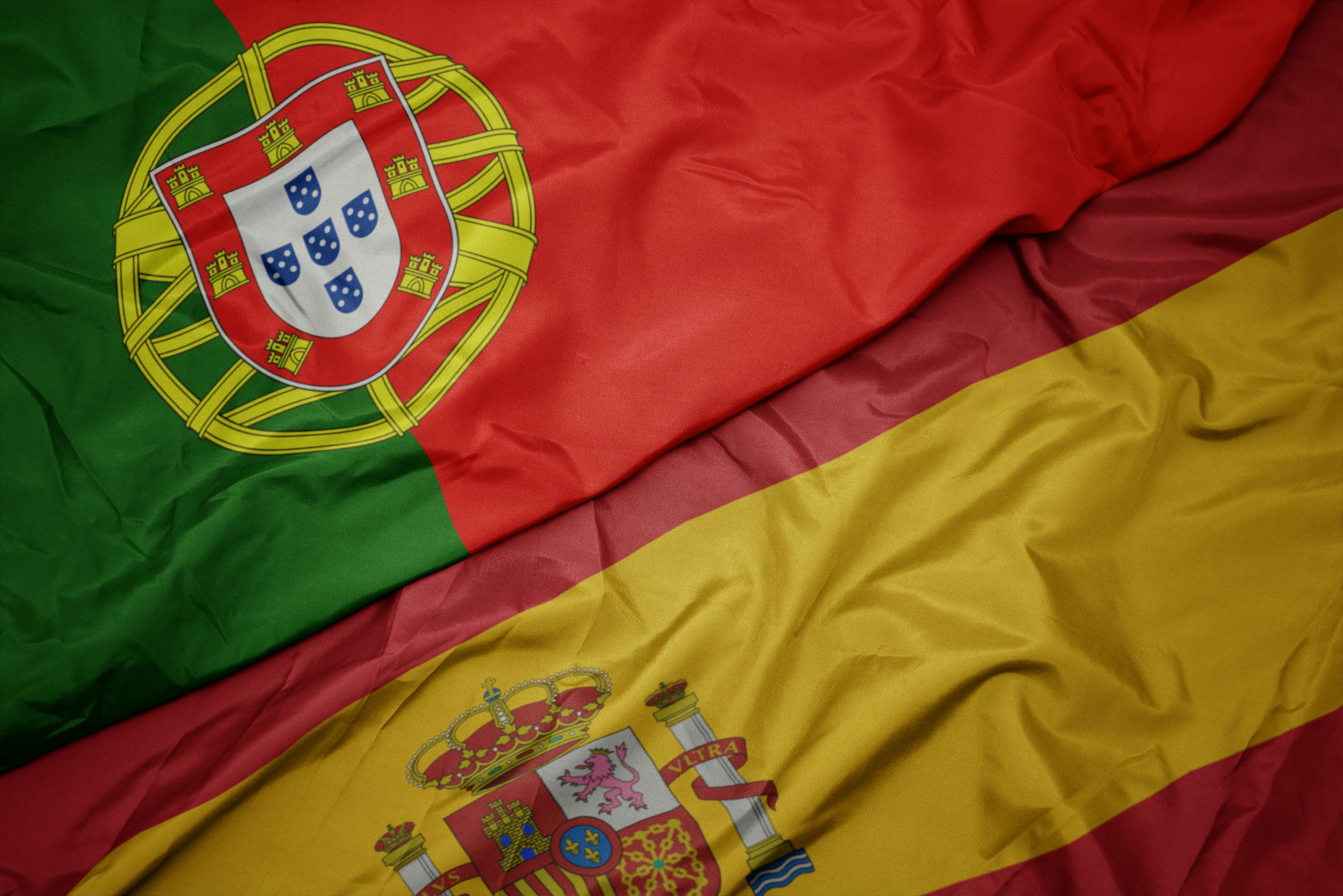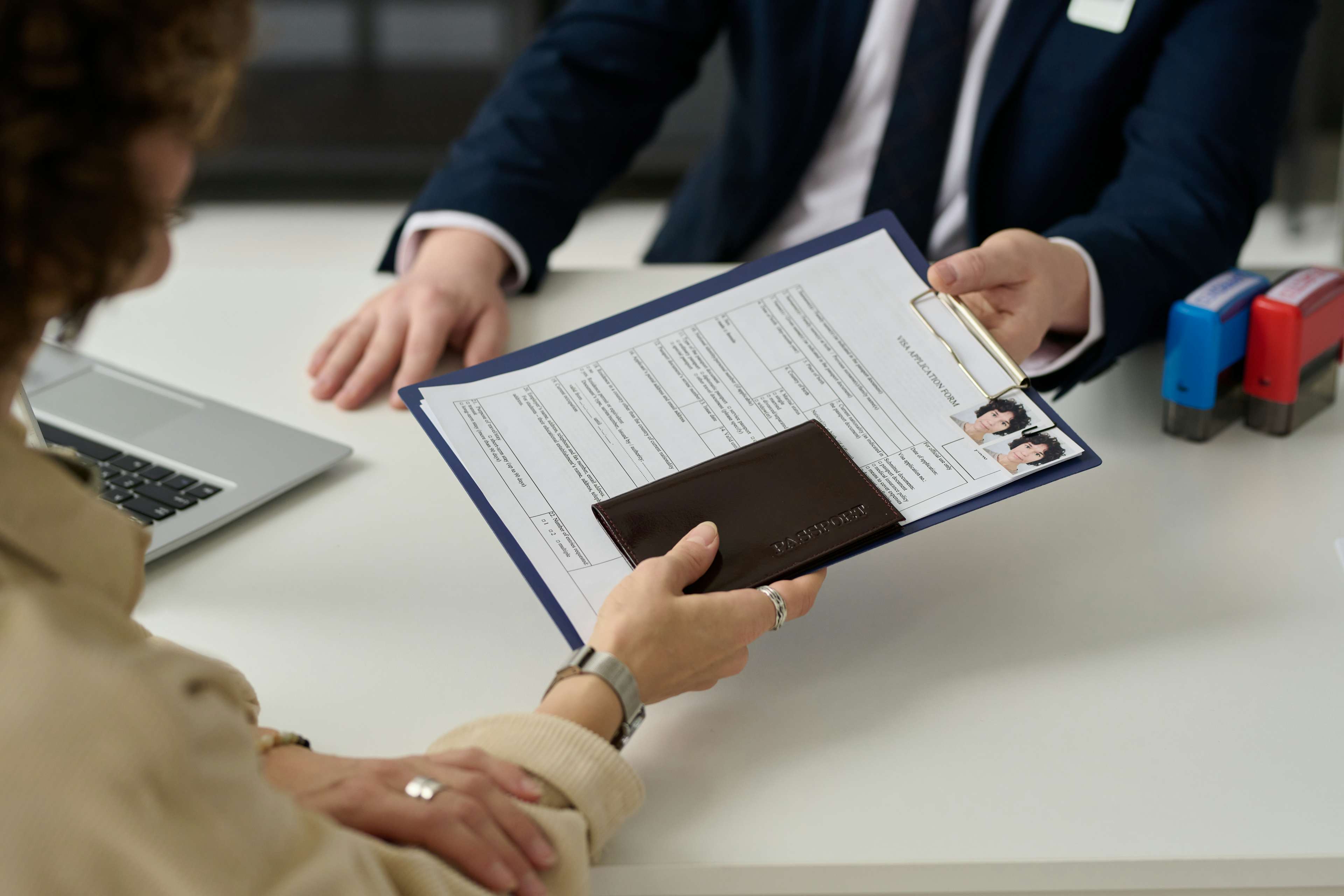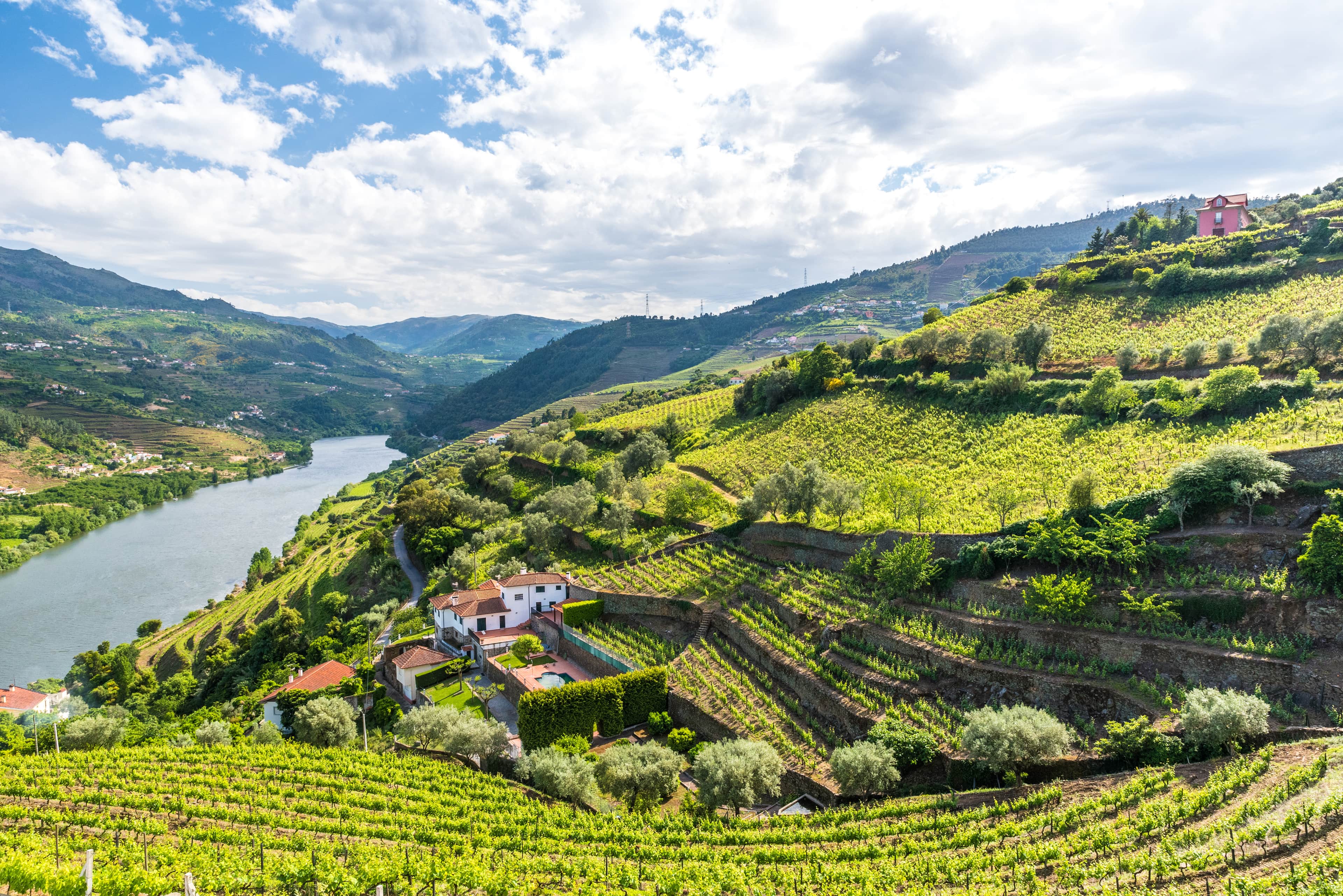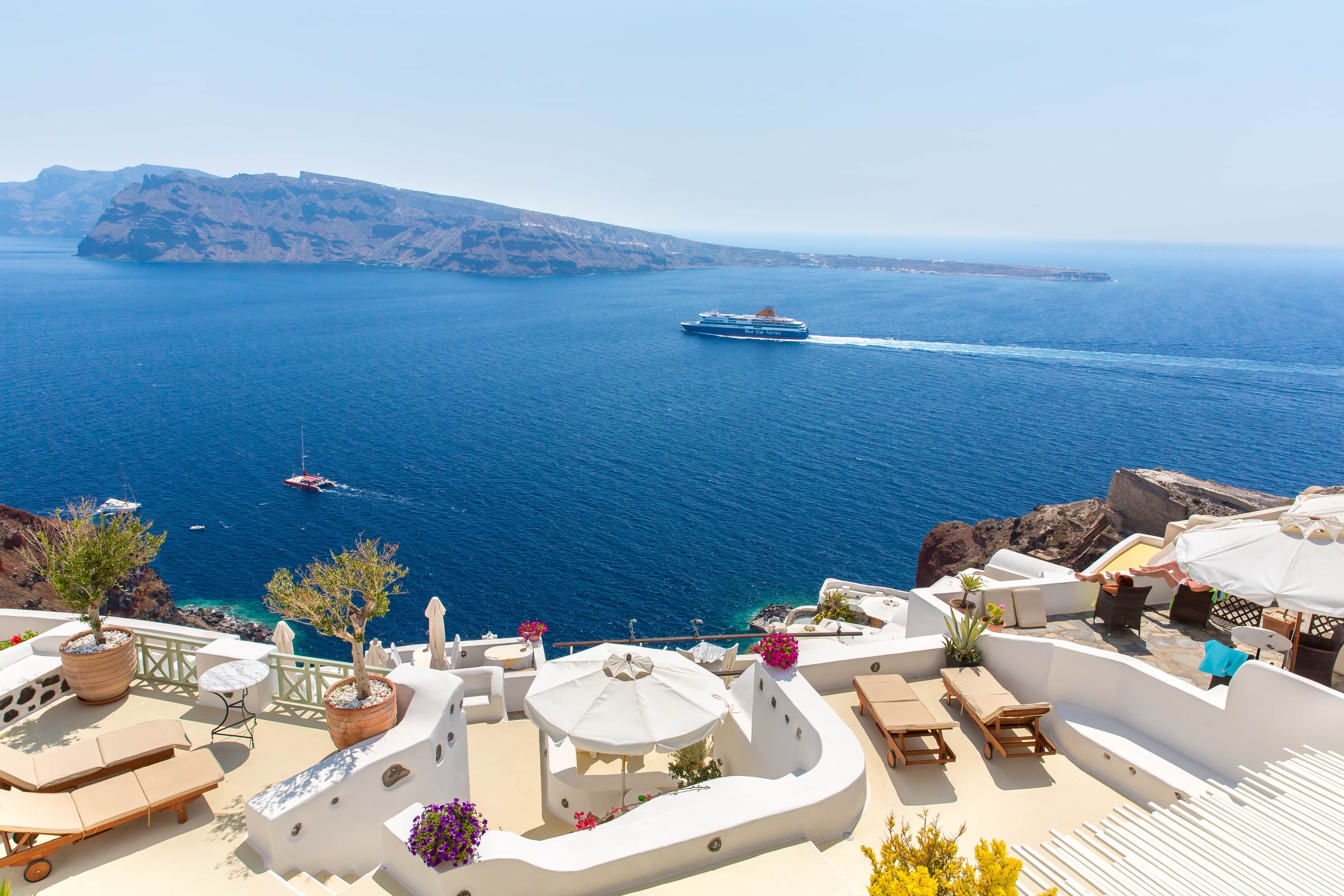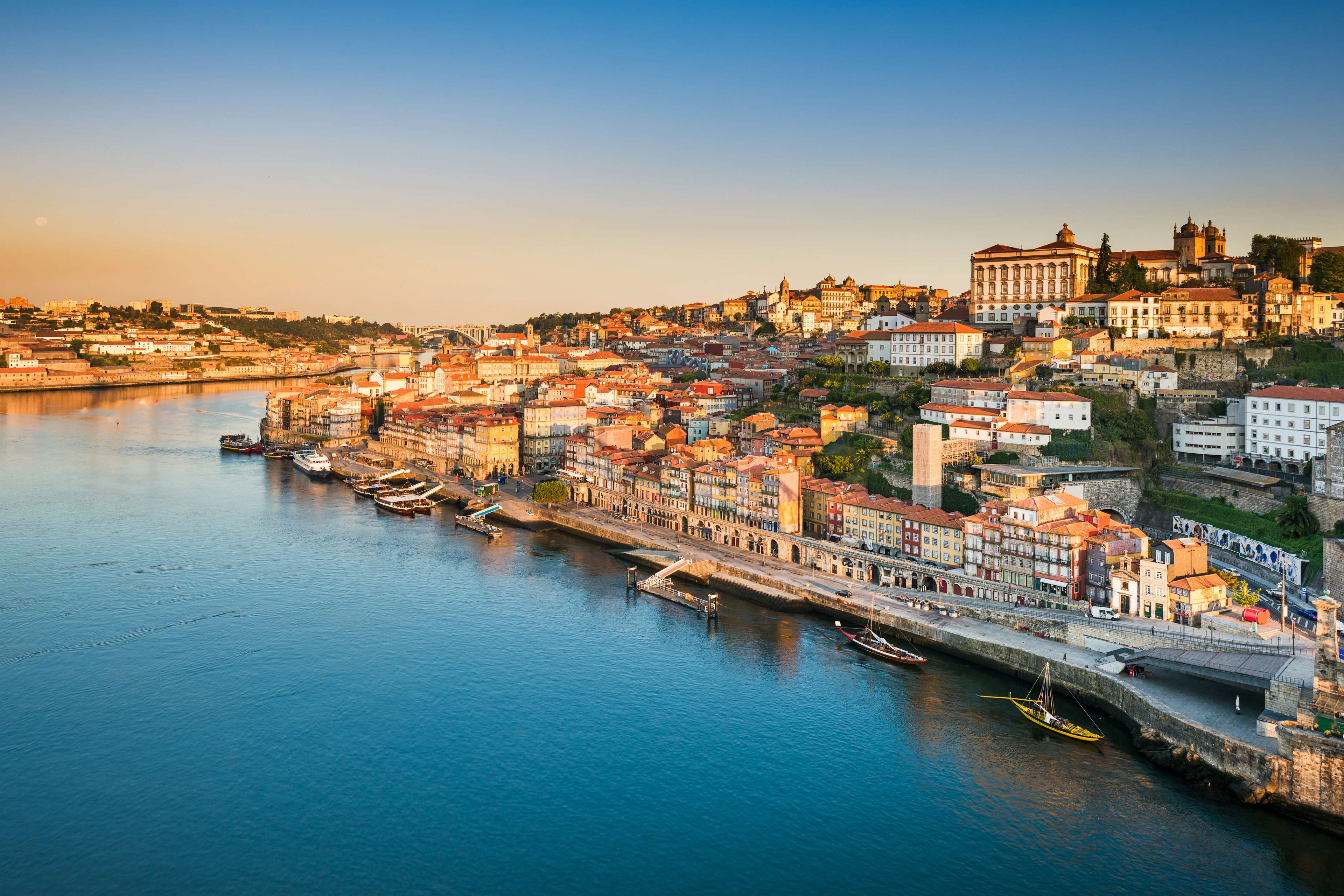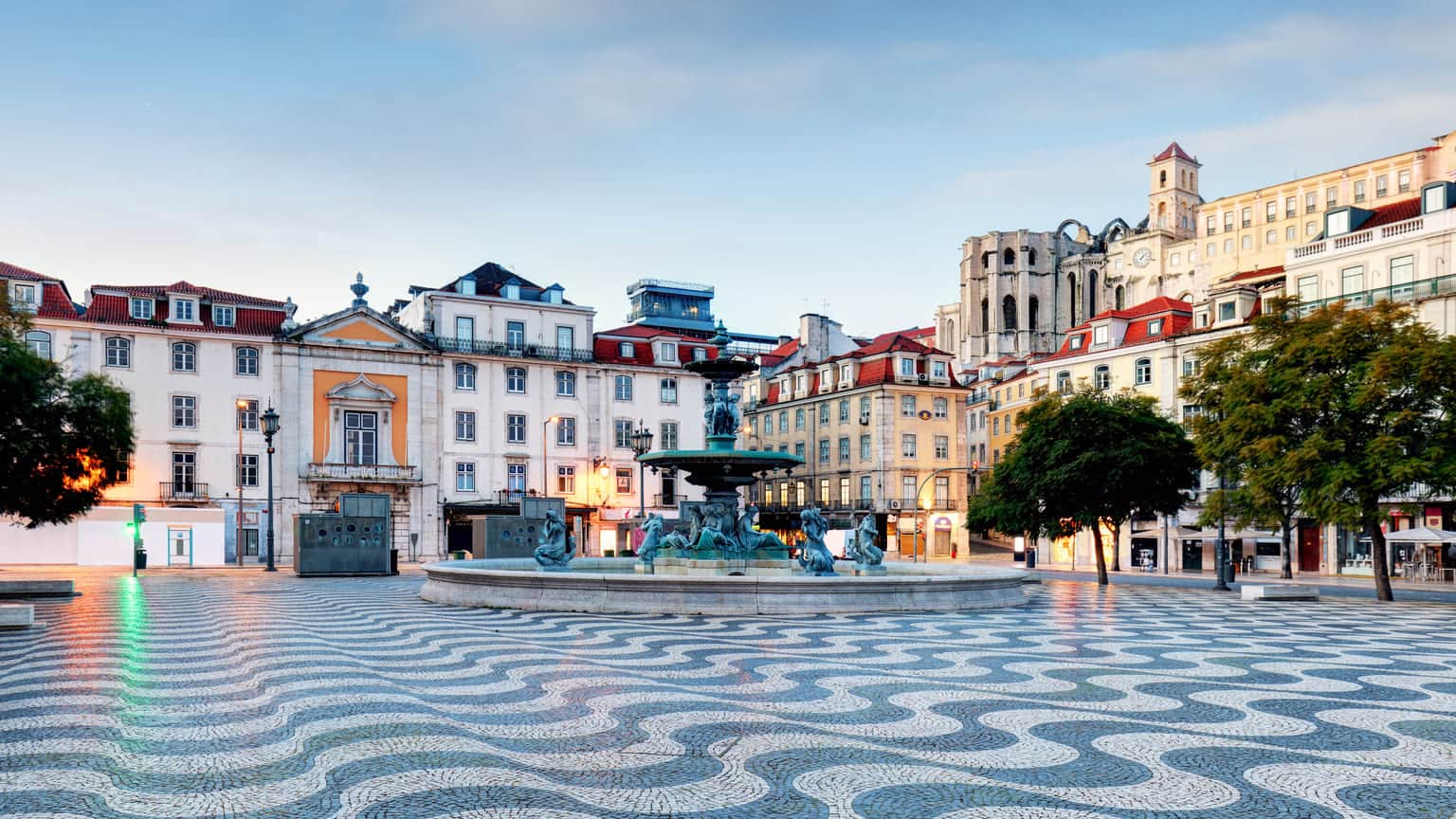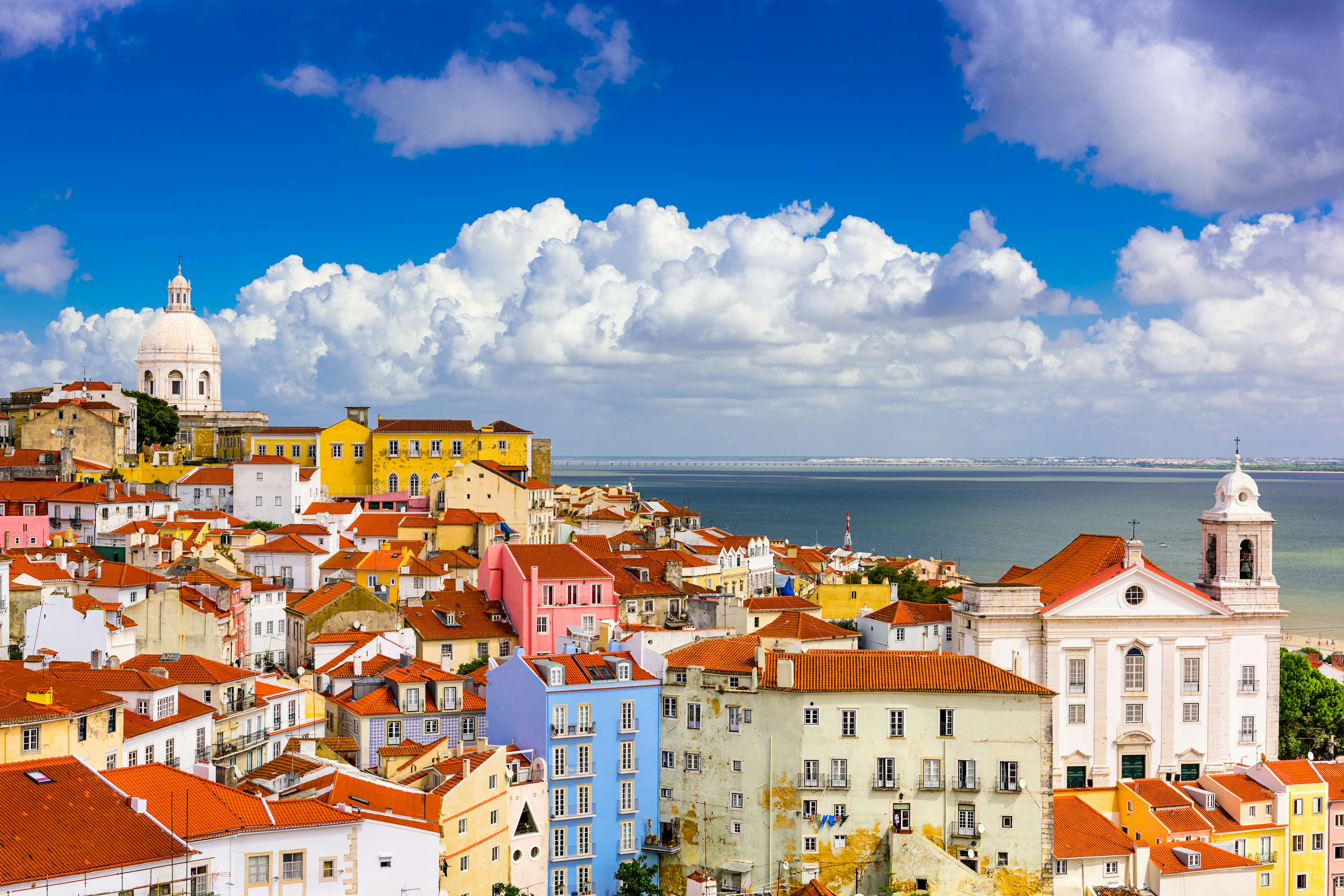Over one million foreigners lived in Portugal in 2023, according to the Portuguese Agency for Integration, Migration and Asylum (AIMA). It is the highest figure ever recorded and represents a 130% increase compared to 2022.
Whether people seek a short-term stay or long-term residency, Portugal offers a range of visas, such as the Digital Nomad Visa and Golden Visa.
In this article, you will learn about the different types of visas available in Portugal and their unique features, the step-by-step process for applying for a Golden Visa in Portugal and how to transition from a resident permit to Portuguese citizenship.

All Portugal Visa Types for Short and Long Stay
Share:
Overview of Portugal Visa Types
Portugal offers various types of visas to accommodate different purposes of travel and residency:
Short-stay visas — Schengen visas for tourism.
Temporary stay national visas — for work and study.
Long-stay residency visas — so-called Portugal immigration visa types.
Short-stay visas allow visitors to stay in Portugal and other Schengen Area countries for up to 90 days within a 180-day period. They are ideal for tourists, business travellers, and those visiting family or attending short-term cultural or sports events.
Temporary stay national visas are intended for individuals who plan to stay in Portugal for more than 90 but less than 365 days. They are commonly issued to students enrolled in long-term academic programs and professionals on temporary work assignments. This category also includes visas for people undergoing medical treatment in Portugal.
Long-stay residency visas are for individuals who intend to live in Portugal for more than one year. They encompass various categories, including the popular Golden Visa program.
The Portugal Golden Visa is specifically designed for non-EU investors who make significant financial contributions to the Portuguese economy, such as purchasing fund units. Long-stay residency visas are the first step towards obtaining a residence permit, which can eventually lead to permanent residency or citizenship in Portugal.
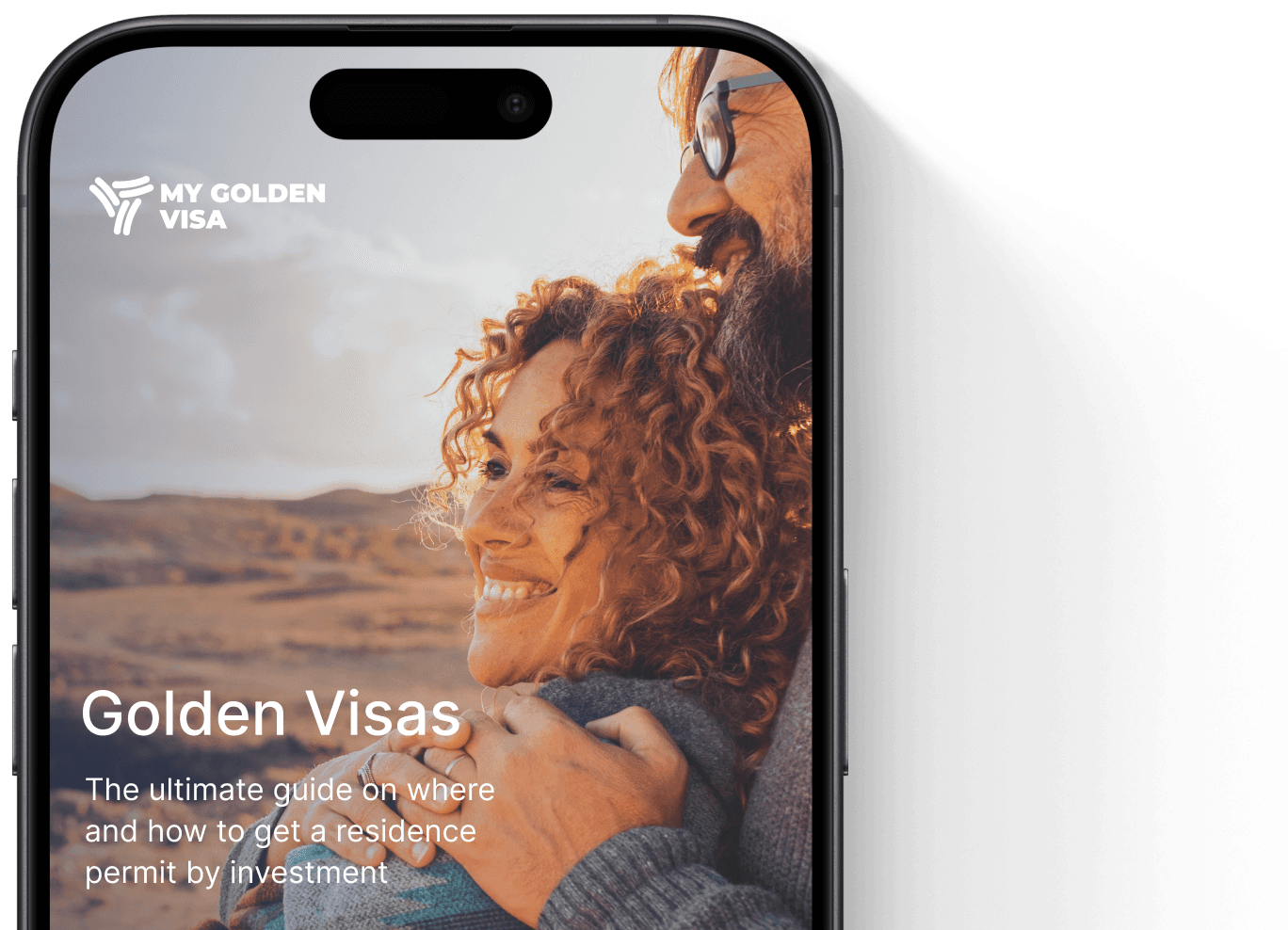
Explore the benefits and drawbacks of the Portugal investment program versus other Golden Visas
Who Needs a Visa to Enter Portugal
Non-EU and non-EEA citizens must obtain a visa to enter Portugal. The type of visa required depends on the purpose of the visit and the duration of the stay.
Citizens of the EU and EEA do not need visas. Portugal, as a member of the Schengen Area, allows them and several other countries with bilateral agreements to travel visa-free for short stays.
104 Countries Whose Citizens Require a Visa to Enter Portugal
How Long a Foreigner Can Stay in Portugal Without a Visa
Citizens of EU and EEA countries and foreigners from visa-exempt countries are allowed to stay in Portugal for up to 90 days within a 180-day period without a visa. This rule applies to short stays for purposes such as tourism, business trips, and family visits.
To calculate the stay:
Count backwards 180 days from your intended departure date.
Ensure that the total number of days spent in the Schengen Area does not exceed 90 days within this period.
Count the day of entry and the day of exit as days of stay in the Schengen Area.
For stays longer than 90 days or for purposes such as studying, working, or living in Portugal, individuals must apply for a specific visa or residence permit.
Schengen Short-Term Visa
The Schengen Visa is designed for short stays and allows travellers to visit Portugal and other Schengen Area countries for up to 90 days within a 180-day period. This visa is ideal for tourists, business travellers, and those visiting family or friends.
Pros:
allows travel to multiple countries in the Schengen Area;
quick processing time;
suitable for various short-term purposes.
Cons:
limited to 90 days within a 180-day period;
does not permit long-term stay or residency;
requires proof of sufficient financial means and accommodation.
Document requirements:
valid passport;
travel insurance;
proof of accommodation;
bank statement showing sufficient financial means;
return ticket.
Applications are submitted at the Portuguese consulate or embassy in your home country. Processing time can vary but usually takes about 15 days.
The fee for a Schengen Visa is €90 for adults and €45 for children aged 6 to 12.
Application process:
Collect all required documents.
Complete the Schengen Visa application form available on the website of the Portuguese consulate or embassy.
Book an appointment at the nearest Portuguese consulate or embassy.
Submit your application and documents, and provide biometric data.
Pay the visa application fee.
Collect your passport with the visa from the consulate or embassy.

While most applicants successfully obtain Schengen Visas, the rejection rate reached 15.81% in 2023, varying by country. Some consulates apply stricter criteria than others
Portugal Type-D Long-Term Residency Visas: fees and process
Portugal offers several D-type residency visas designed for those who plan to stay in the country for extended periods, whether for study, business, academic, or personal reasons.
Type-D visa fees depend on many factors and are subject to change. Typically, the applicant will spend between €200 and €300.
Applying for a type-D visa in Portugal involves several steps to ensure that you meet all the requirements and provide the necessary documentation.
Here is a detailed application process:
Gather documents. Collect all required documents, depending on visa type, proof of sufficient financial means, and proof of accommodation. Ensure that all documents are up-to-date and translated into Portuguese.
Fill out an application. Complete the visa application form available on the website of the Portuguese consulate or embassy. Be sure to fill out all sections accurately and completely to avoid delays.
Schedule appointment. Book an appointment at the nearest Portuguese consulate or embassy. This can usually be done online through the consulate’s website.
Attend the appointment. Attend your scheduled appointment to submit your application and all required documents. Be prepared to provide biometric data and answer any questions the consular officer may have. An interview may be required to verify the information provided.
Pay the fee. Payment methods may vary by consulate, so check in advance whether you need to pay in cash, by credit card, or another method.
Wait for processing. Processing times can vary, but it typically takes several weeks. During this period, the consulate will review your application and verify the provided documents.
Receive the visa. Once your application is approved, you will be notified to collect your passport with the visa from the consulate or embassy. Ensure that you check the visa details for accuracy and keep copies of all important documents.
Work D1 Visa
A work D1 visa is for individuals who have secured employment in Portugal and plan to stay for an extended period.
Pros:
allows long-term stay and employment in Portugal;
provides access to Portugal’s labour market and social benefits;
can lead to permanent residency and citizenship.
Cons:
requires a confirmed job offer;
comprehensive documentation and proof of qualifications needed;
processing times can vary.
Document requirements:
employment contract from a Portuguese employer,
proof of qualifications,
criminal record certificate,
health insurance,
proof of financial means.
The application is submitted at the Portuguese consulate or embassy, and it requires a job offer from a Portuguese employer. Documentation proving the applicant’s qualifications and the job offer are essential.
The fee for a work visa is approximately €90.
Entrepreneur D2 Visa
The D2 visa is designed for entrepreneurs and independent workers who wish to start a business or professional activity in Portugal. Applicants must buy a local company or its shares or create a branch of an existing legal entity.
Another option is to establish a new company in the country and provide a detailed business plan describing the prospects for its development.
Pros:
allows long-term residency in Portugal;
opportunity to start or expand a business;
access to Portugal’s markets and business environment.
Cons:
requires a detailed business plan;
comprehensive documentation needed;
processing times can vary.
The D2 visa is valid for 4 months. During this time, the holder must arrive in Portugal and submit documents for a residence permit to AIMA.
HQA D3 Visa for Highly Qualified Professionals
Highly qualified activity (HQA), or D3 Visa, is for professionals with high qualifications, particularly in research, academia, or highly skilled sectors.
To be eligible for the Portugal D3 Visa, applicants must earn a minimum salary of €1,528 a month, which is three times the social support amount of €509 in 2024.
Pros:
access to Portugal’s academic and professional sectors;
high earning potential;
pathway to permanent residency and citizenship.
Cons:
requires a job offer or research contract;
high salary requirement;
comprehensive documentation needed.
Obtaining a D3 visa takes approximately two months. Immediately after approval, holders must apply to AIMA with documents for a residence permit. The residence permit is issued for two years and can be extended for another three years.
Student Visas D4 and D5
These types of visas are for individuals who have been accepted into a recognized educational institution in Portugal and plan to stay for more than 90 days.
Pros:
allows long-term stay for the duration of the study program;
provides access to Portugal’s educational system;
can lead to further residency opportunities after graduation.
Cons:
requires proof of sufficient financial means;
limited to the duration of the study program;
requires comprehensive documentation.
Document requirements:
proof of acceptance into an educational institution,
financial means to support oneself,
health insurance,
proof of accommodation.
Applications are made through the Portuguese consulate or embassy with supporting documents, including a letter of acceptance from the educational institution.
The fee for a student visa varies but is generally around €90.
Family Reunification Visa D6
The visa is for family members of individuals who are legally residing in Portugal. This visa allows families to live together in Portugal.
Pros:
allows families to live together in Portugal;
provides access to Portugal’s social benefits for family members;
can lead to permanent residency for family members.
Cons:
requires proof of sufficient financial means and accommodation;
an applicant depends on the legal residency status of the sponsor;
comprehensive documentation needed to prove family relationships.
Document requirements:
proof of family relationship: marriage certificate, birth certificate,
proof of the sponsor’s legal residence in Portugal,
sufficient financial means,
accommodation.
The application must be submitted at the Portuguese consulate or embassy with the necessary documents proving the family relationship and the sponsor’s residency status.
The fee for a family reunification visa is generally around €90.
These visa types cover a range of purposes, from short tourist visits to long-term stays for study, work, or family reunification, ensuring that Portugal can accommodate various needs and circumstances for those wishing to visit or move to the country.
Passive Income D7 Visa
The visa is designed for retirees or individuals with a stable passive income who wish to reside in Portugal. Almost any legal income obtained remotely from sources outside Portugal qualifies as passive income, including:
pension,
rental payments,
interest,
royalties.
The income should equal or exceed the minimum wage in Portugal. The threshold changes every year. In 2024, it is €820 monthly.
The D7 visa is also an option for retirees looking for a slow life pace in Portugal. Retiring in Portugal is a goal for many, and the country ranks highly. Portugal took second place in the 2024 Annual Global Retirement Index.
Pros:
ideal for retirees and individuals with passive income;
allows long-term residency in Portugal;
access to Portugal’s social benefits and healthcare.
Cons:
requires proof of sufficient passive income;
comprehensive documentation needed;
processing times can vary.
The D7 Visa is valid for 4 months. During this period, the visa holder must arrive in Portugal and submit documents for a residence permit. Residency cards are valid for 2 years and can be extended for another 3 years.
Digital Nomad D8 Visa
This type of visa is designed for digital nomads and remote workers who can perform their jobs from anywhere in the world, including Portugal.
Pros:
ideal for digital nomads and remote workers;
allows long-term residency in Portugal;
flexibility to work from anywhere.
Cons:
requires proof of remote employment and sufficient income;
comprehensive documentation needed;
processing times can vary.
The Portugal Digital Nomad Visa is issued for 2 years to remote workers who earn at least €3,280 per month. If they spend at least 16 months in the country during that period, the visa can be extended for 3 years.

Portugal stands out as a popular destination for digital nomads, ranking sixth in the world
Portugal StartUp Visa
The visa is designed to attract foreign entrepreneurs who aim to establish innovative businesses in Portugal. The business must focus on technology and have the potential for significant growth and scalability.
Applicants must be accepted into a certified Portuguese business incubator, which will submit an application to IAPMEI, the Portuguese Agency for Competitiveness and Innovation. IAPMEI evaluates projects on their market potential to attain, 5 years after the incubation period, a turnover €325,000+ per year or assets value over €325,000 per year.
Pros:
grants the right to live and work in Portugal;
access to resources and support from Portuguese business incubators;
opportunity to be part of Portugal’s growing startup ecosystem;
can lead to permanent residency and eventual citizenship in Portugal.
Cons:
requires a highly innovative and scalable business idea;
must be accepted into a certified Portuguese incubator;
requires extensive documentation and a detailed business plan;
can vary, leading to potential delays in starting your business activities.
The visa is issued for 4 months, giving the right to enter Portugal and apply for a residence permit for two years, with the option to extend it for another 3 years.
Portugal Golden Visa — Pathway to Global Mobility and EU Citizenship
The Portugal Golden Visa is a residency by investment program that allows wealthy people to obtain residency in the country by contributing to its economy.
The residence permit is issued for 2 years with the opportunity to extend it every 2 years for as long as the investor wants. To renew their residency, applicants must spend at least 7 days per year in Portugal.
After 5 years, investors can apply for permanent residency or citizenship.
Portugal Golden Visa has five investment options:
Purchase of investment fund units — €500,000. It must be held for at least 5 years. Then, the investor can return the money and get their part of the earned profit.
Supporting arts and restoring cultural heritage — €250,000. This type of investment is non-refundable.
Investment in research activities — €500,000. This type of investment is non-refundable.
Business investment — €500,000 to the chosen business and creates at least 5 jobs.
Opening a company with the creation of at least 10 jobs. The minimum investment sum is unspecified.
Requirements. The main applicant must be over 18, have no criminal record, be without debts in Portugal and be able to confirm the legality of the income
Spouses in a registered marriage or in a common-law marriage, children under 26, and parents are eligible to participate in the program alongside the investor.
Expenses under the fund purchase option
7 Benefits of a Portugal Golden Visa
1. Residency in a Schengen country. Holders of the Portugal Golden Visa can travel freely within the 29 countries of the Schengen Area without the need for separate visas. This benefit provides immense flexibility and convenience for both personal and business travel within Europe.
2. Pathway to Portuguese citizenship. After maintaining the investment and meeting residency requirements for five years, visa holders can apply for permanent residency or citizenship. A Portuguese passport provides the right to live and work in any EU country.
3. Option to live, work, and study in Portugal. The Golden Visa grants the right to live in Portugal, which boasts a high quality of life, excellent healthcare, and a robust education system. Visa holders and their families can access Portugal’s public services, including healthcare and education, making it an attractive option for families.
4. Family reunification. The Portugal Golden Visa allows for family reunification, enabling investors to include their immediate family members in the application. This includes spouses, dependent children, and dependent parents. This benefit ensures that families can stay together and enjoy the advantages of living in Portugal.
5. Access to quality healthcare. Portuguese residents can get medical assistance at public Portuguese hospitals free of charge. They can also travel to other Schengen countries without a visa for short-term treatment. Private clinics with English-speaking doctors also provide healthcare services in Portugal.
Portugal has a high standard of healthcare, ranking 25th in the 2023 Health Care Index by Numbeo. The current life expectancy for Portugal in 2024 is 82.80 years, which is 0.18% higher compared to 2023.
How to Apply for a Portugal Golden Visa
According to Golden Visa experts, obtaining a Portugal Golden Visa usually takes 12 months. This type of visa requires a step-by-step procedure that includes several stages.
1—2 weeks
Obtaining a Portuguese tax number
To make an investment, a third-country national has to obtain the taxpayer identification number or Número de Identificação Fiscal (NIF).
To make an investment, a third-country national has to obtain the taxpayer identification number or Número de Identificação Fiscal (NIF).
4—6 weeks
Opening a bank account in a Portuguese bank
Under the Portugal Golden Visa Program’s conditions, the investment must be made from the applicant’s account in a Portuguese bank.
Golden Visa experts help open an account in Portugal.
Under the Portugal Golden Visa Program’s conditions, the investment must be made from the applicant’s account in a Portuguese bank.
Golden Visa experts help open an account in Portugal.
2—3 weeks
Investing
The applicant invests money by choosing among five investment options.
The applicant invests money by choosing among five investment options.
1—2 weeks
Submitting biometrics
The investor and their family members come to Portugal in person and submit the original documents and fingerprints for residence permit cards.
The investor and their family members come to Portugal in person and submit the original documents and fingerprints for residence permit cards.
6—8 months
Approval and obtaining the residence permit cards
After AIMA approves the application, the investor pays the fee for the residence permit cards. The cards are prepared within two weeks and issued to the investor or lawyer by proxy.
After AIMA approves the application, the investor pays the fee for the residence permit cards. The cards are prepared within two weeks and issued to the investor or lawyer by proxy.
Every 2 years
Renewal of residence permit
To maintain residency, the investor and their family must spend at least seven days a year in Portugal. They have to renew their residence permit every two years.
To maintain residency, the investor and their family must spend at least seven days a year in Portugal. They have to renew their residence permit every two years.
Obtaining Citizenship after Golden Visa Residency
To be eligible for Portuguese citizenship through the Golden Visa program, applicants must meet the following criteria:
Residency duration. The applicant must have legally resided in Portugal for at least five years. This period can be non-continuous as long as the total residency adds up to five years.
Investment maintenance. The investment made under the Golden Visa program must be maintained for a minimum of five years.
Clean criminal record. The applicant must not have a criminal record in Portugal or any other country.
Basic knowledge of Portuguese. Applicants must demonstrate a basic understanding of the Portuguese language on the A2 level, which includes the ability to understand and use everyday expressions and basic phrases.
Portuguese citizens gain the right to live, work, and study in any of the 29 EU countries, as well as in Norway, Iceland, Switzerland, and Liechtenstein. They also enjoy visa-free or visa-on-arrival access to over 170 countries, including the US, Canada, Australia, and Japan.
Key Points About the Portugal Visa Types
Portugal’s diverse range of visa options and residency permits make it an attractive destination for tourists, students, professionals, and investors.
Citizens from EU, EEA, and visa-exempt countries can stay in Portugal for up to 90 days within a 180-day period without requiring a visa. This allowance covers short stays for purposes such as tourism, business trips, and family visits.
The Portugal Golden Visa stands out as a highly advantageous program for non-EU investors. It provides not only residency but also a pathway to Portuguese citizenship and, by extension, EU citizenship.
The Golden Visa requires investments in Portugal’s economy, such as purchasing investment fund units for at least $500,000.

Download our complete guide to learn everything you need about 9 popular Golden Visa programs.
Benefits
Investment options
Eligibility requirements
Processing times


